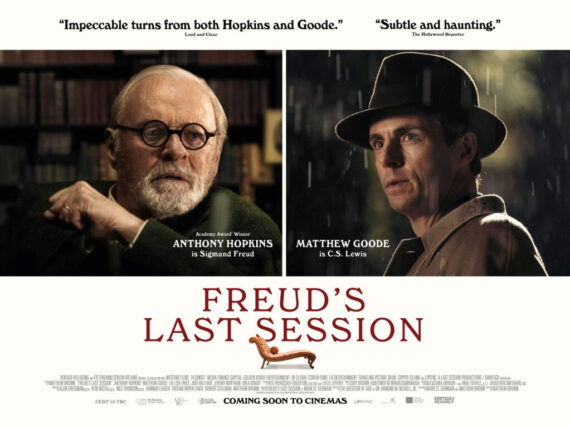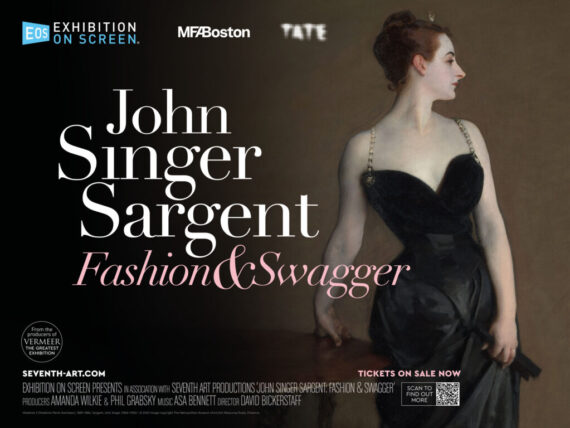Carol is showing at Plymouth Arts Centre Cinema from 5 – 14 January 2016. It will be introduced on Tuesday 12th January by Millie Brown, Leader for BA in Fashion Media and Marketing at Plymouth College of Art.
Starring Cate Blanchett and Rooney Mara, ‘Carol’ is that most rare thing; a love story for grown-ups. Set in 1950’s New York, ‘Carol’ relates the extraordinary journey of two women struggling against social convention. A chance encounter at a Manhattan department store between sales assistant (Mara) and wealthy, glamorous Carol (Blanchett) sparks a connection between the pair. As the innocent Therese Belivet, Rooney Mara’s character is the perfect foil for Blanchett’s worldly and refined Carol Aird.
As their love affair deepens, Blanchett’s marriage of convenience finally crumbles. Her husband Harge (played by Kyle Chandler) channels his fury at Carol by accusing her of being an unfit mother to their child. As their divorce proceeds, we learn that Carol’s affair with Therese is not the first time she has looked outside the marriage for affection.
Adapted from Patricia Highsmith’s novel ‘The Price of Salt’, which sold nearly a million copies on its release in 1952, you may think you know how this story ends, but ‘Carol’ keeps you guessing till the very last frame.
For anyone who has read Patricia Highsmith’s work, this plot will be initially confusing, as you will be familiar with her cast of dark, dissociated characters from the ‘Ripley’ novels. But in ‘Carol’, Highsmith exposes the vulnerability she experienced regarding her own sexuality. One of her chief literary influences was the American novelist Henry James, and it may not make sense if you consider Ripley, but in Carol Aird, Highsmith’s creation chimes with James’ ‘Portrait of a Lady’. You can’t help but feel that Carol Aird and Isabel Archer would have a great deal to talk about over dry Martinis.
Screenwriter Phyllis Nagy does a wonderful job adapting Highsmith’s novel– the weighty silences give the actors ample room to perform. Nagy understands Highsmith’s brittle prose, creating a dramatic tension between expression and longing; saying just enough, but leaving nothing out.
While the screenplay is cut fine and lean, the visual impact of ‘Carol’ embraces you with generous, exuberant warmth. The attention to detail is beautifully mastered: the optimism of post-War America is written across the screen in bold colours and contemporary design. A special nod has to go to costume designer Sandy Powell, whose visual literacy is so intuitive, that you see the characters transition through their experiences just by what they’re wearing. Carol’s journey from impeccably-dressed Manhattan wife to a woman on the verge of a new life is told in every detail of the vintage wardrobe.
But director Todd Haynes keeps a tight rein on the nostalgia – the set-design and costumes are there to add layers of authenticity, never to distract. Haynes is determined that we keep our eye on the ball – so much so that he hired ‘real people’ instead of film extras to appear in the crowd scenes. It’s a small touch, but it shows Haynes’ commitment to maintaining a balance. Echoing his earlier film ‘Far From Heaven’ (2002), Haynes clearly adores the Fifties era, and his visualisation of ‘Carol’ is utterly seductive. The camera leans in, but never insinuates. Haynes wisely lets Blanchett and Mara do all the work, the camera here to record and quietly observe.
While the central performance of Cate Blanchett as Carol is gaining serious Oscar leverage, this film is very much a victory for ensemble work, from Blanchett and Mara’s exemplary leads, to Kyle Chandler and Sarah Paulson’s poignant supporting roles. Every component of this film fits together, and it’s so effortless, you almost kid yourself that this is normal – that films like this are made every day. But they’re not, and as much as the phrase ‘modern classic’ can’t really be applied to a new release, there’ s no other way I can think of to describe this film.
‘Carol’ is a triumph of style and substance; an emotionally complex, beautifully crafted film that just wants to be loved. It’s a film with which it is hard to find fault – but where it diverges from traditional Oscar fare, is in its ability to wear excellence with such a casual glamour. You will drink it all in, but will come away remembering the openness and honesty of the storytelling.
As the film studios roll out their prestige pictures for awards season, there will be the usual clutch of heavyweights vying for the top prizes. Accomplishment at this level can be formidable, and while as a viewer I can find much to admire, I don’t always find myself emotionally connected to these films. This is where ‘Carol’ gains the advantage, as it proudly wears its heart on its sleeve but still possesses the intellectual gravitas to take on the big-hitters. To keep one’s head without losing heart is an astonishing achievement. Watch this film and be prepared to fall in love with cinema all over again.
Helen Tope








Comments (1)